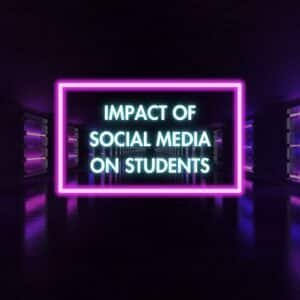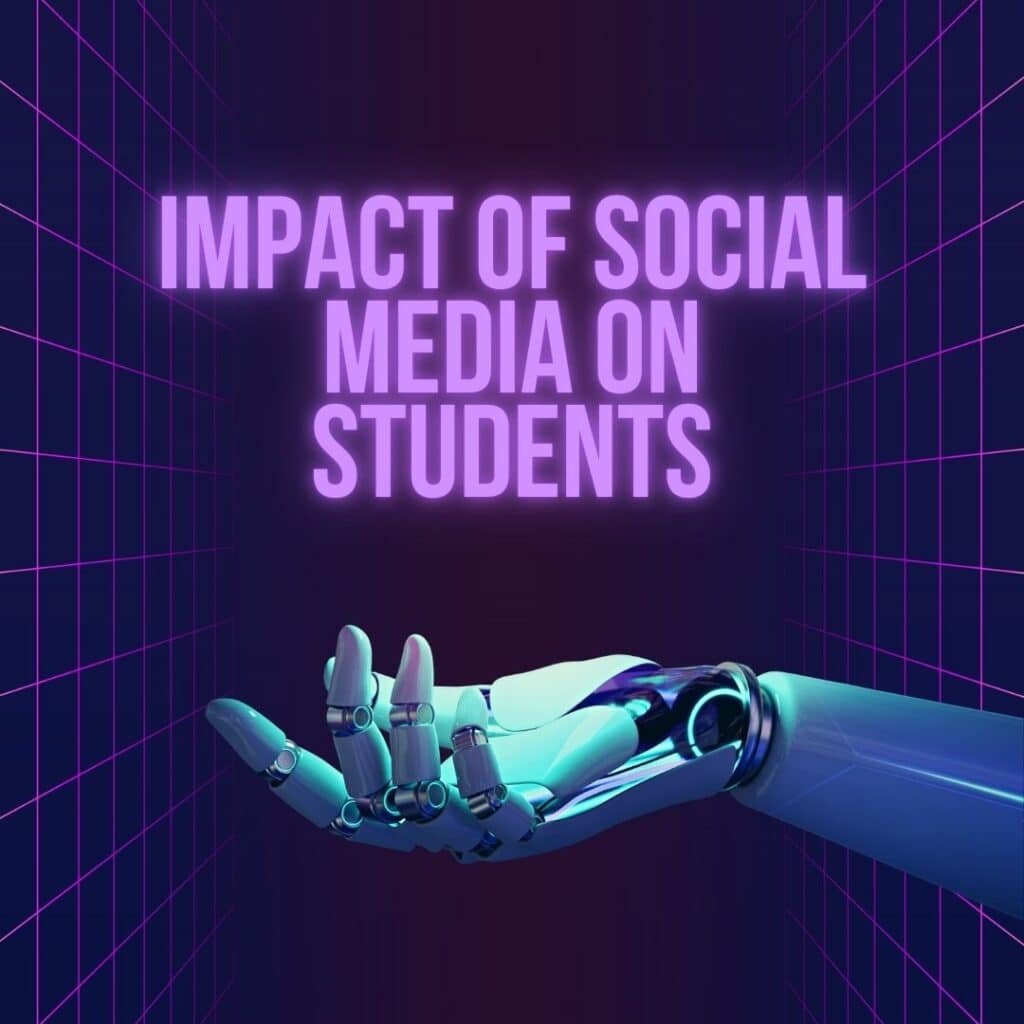This article delves into how social media affects student life and learning.
In today’s digital era, social media holds a crucial place in the lives of students. With the rise of platforms like Facebook, Instagram, TikTok, and Twitter, students have more ways to connect, learn, and share than ever before. However, the influence of social media on students is a double-edged sword. While it provides opportunities for growth, networking, and learning, it also presents challenges such as distraction, cyberbullying, and misinformation. In this article, we will explore the impact of social media on students, both positive and negative, and provide tips for how students can use these platforms responsibly.
Positive Impacts of Social Media on Students
- Access to Information and Learning Resources
One of the biggest advantages of social media is its ability to make learning more accessible. Platforms like YouTube, LinkedIn Learning, and even Instagram offer educational content that can help students better understand complex topics. Tutorials, lectures, and online courses are just a click away, allowing students to expand their knowledge outside of traditional classroom settings. Social media can also help students stay updated on the latest news, research, and trends in their fields of interest.
- Collaboration and Networking Opportunities
Social media provides students with a valuable chance to connect and engage with peers, professionals, and experts in their fields. Platforms like LinkedIn allow students to connect with industry professionals, which can lead to internships, mentorship, and career opportunities. Additionally, group discussions, project collaborations, and knowledge-sharing on platforms like Facebook Groups or Reddit can be invaluable in academic growth.
- Skill Development
Students can use social media to develop skills that are essential in the digital era. For instance, content creation, video editing, and communication skills can be honed through regular use of platforms like YouTube or Instagram. Additionally, managing a personal or professional brand on social media can teach students about marketing, public relations, and digital storytelling, which are highly valuable in today’s job market.
- Emotional Support and Community Building
Many students find emotional support through social media. Platforms provide a space for students to share their struggles, ask for advice, and build communities of like-minded individuals. For those facing challenges like mental health issues, social media can be a source of encouragement and motivation as they find others going through similar experiences. The sense of belonging that students get from these online communities can be incredibly empowering.
Negative Impacts of Social Media on Students
- Distraction and Reduced Productivity
One of the biggest challenges students face with social media is distraction. With constant notifications and endless content to scroll through, it’s easy for students to lose track of time and neglect their studies. A 2023 study showed that students who spent more than three hours a day on social media had lower academic performance compared to those who limited their usage. Social media often pulls students’ attention away from important tasks like studying, leading to procrastination and decreased productivity.
- Cyberbullying and Mental Health Issues
Cyberbullying is a growing concern, particularly for students. The anonymity of social media can lead to harmful behaviors, such as harassment, bullying, and trolling. Many students face cyberbullying, which can lead to stress, anxiety, depression, and, in severe cases, even suicidal thoughts. The constant pressure to present a “perfect” image online can also affect students’ self-esteem and mental health.
- Addiction and Over-dependence
Many students become addicted to social media, relying on it for constant entertainment and validation. This addiction can lead to over-dependence, where students feel anxious or restless without their phones. Excessive social media use can also lead to sleep deprivation, as students often stay up late scrolling through their feeds. Over time, this can affect their physical health and overall well-being.
- Misinformation and False Narratives
Another significant issue is the proliferation of misinformation on social media. Students, particularly younger ones, may not always be able to distinguish between credible sources and false information. This can lead to the spreading of rumors, conspiracy theories, and misinformation, which can negatively impact students’ understanding of important topics. Additionally, students may be influenced by unrealistic portrayals of life and success on social media, which can lead to feelings of inadequacy.

How Students Can Use Social Media Responsibly
- Set Time Limits
One way to mitigate the negative effects of social media is by setting time limits. Students can use apps that track screen time or set timers to limit their usage. This will help them stay focused on their studies while still enjoying the benefits of social media.
- Follow Educational Accounts
To make social media use more productive, students should follow accounts that share educational content. Whether it’s subscribing to YouTube channels that offer tutorials or following industry professionals on LinkedIn, students can use these platforms to learn new skills and stay informed.
- Be Mindful of Mental Health
It’s essential for students to take care of their mental health while using social media. They should unfollow accounts that promote negative body image, toxic comparisons, or unrealistic standards. Instead, they should focus on communities and content that promote positivity, personal growth, and well-being.
- Verify Information
Students should always verify the information they come across on social media before sharing it. This includes checking sources, cross-referencing facts, and ensuring that they are not contributing to the spread of misinformation. Being a responsible digital citizen is key to maintaining a healthy online environment.
Social media undoubtedly has a profound impact on students. While it offers opportunities for learning, collaboration, and emotional support, it also presents challenges like distraction, addiction, and mental health risks. By using social media responsibly, students can harness its benefits while minimizing its drawbacks. Setting boundaries, following educational content, and being mindful of mental health are essential steps students can take to ensure that social media has a positive influence on their lives.
You may be interested about Social Media A Boon or a Bane






